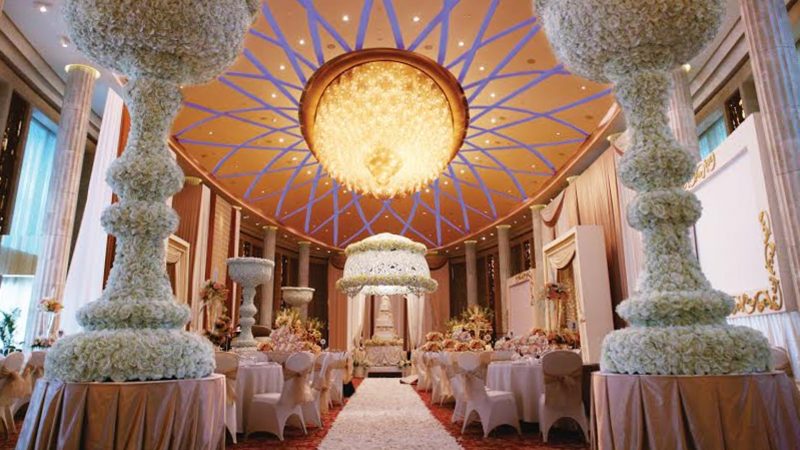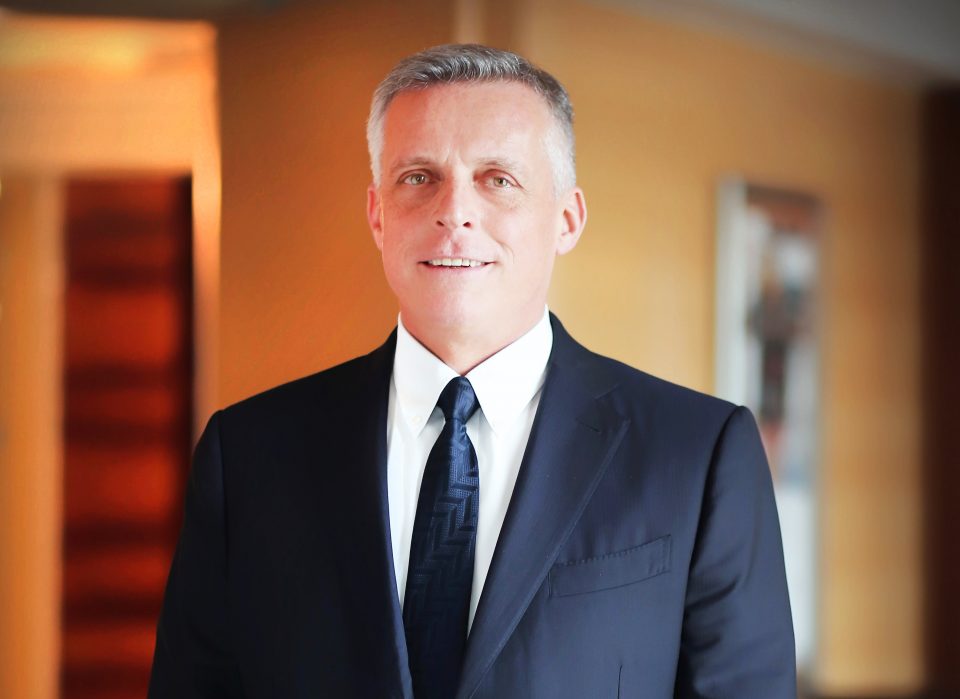With his determination to bring more food into his childhood home in Germany, Sjefke dived into the culinary industry to realise his goal.
Now more than 35 years into his career, Sjefke Jansen is the general manager of Hotel Indonesia Kempinski Jakarta. Indonesia Expat had the chance to reach out to this vibrant man, who describes Jakarta as “a whole new lifestyle component, emerging out of almost nowhere.”
Please tell us your nationality and the number of years you’ve stayed in Indonesia.
I’m Dutch by nationality, although I was born and raised in Germany. I’ve been living in Indonesia since February 2018.
Sjefke, can you please tell us about yourself?
I entered the hospitality business in 1983 at the age of 19 mainly for one reason: as a young man I was always hungry and we never had enough food at home. Hence, I decided to tackle that problem by becoming a trained chef, which I thought would be the right choice – I wasn’t wrong. Starting in the kitchen turned out to be the laying of the foundations of my career, spanning over 35 years.
Did you move to Indonesia because of your job? Is it a decision you’re happy with?
I was actually headhunted for this assignment. Prior to relocating to Jakarta, I was working and living in St Petersburg, Russia for almost five years. The differences between those two cities couldn’t be greater. The climate, food, and mentality of its people are vastly different; hot versus cold, spicy versus mild, and extrovert versus introvert, just to name a few.
Your career has taken you to many beautiful places in the world. What was the most surprising discovery or observation when you first moved to Indonesia?
Like every city, Jakarta has its pros and cons, but I haven’t regretted moving here. It has so much character and so many different layers of society, yet glued together with an exceptional spirit, which is unique to the destination.
The most surprising discovery is what I would call, the perfectly “organised chaos”. Traffic is not only bad, but it’s also horrific, and yet it flows most of the time. Perhaps not at the speed as expected, but it moves almost miraculously, nevertheless.
What are you busy with these days?
One word: communicating!
The negative force of COVID-19 is unparalleled in its magnitude and so is the impact on our business. We now need to advise, mentor, and guide all stakeholders, like the staff, owners, and patrons, through these uncharted waters, which is a massive undertaking. It’s a time to show empathy and address everyone’s concerns through transparent communication.
You’ve been in the hospitality industry since the mid-80s, what are your thoughts on the industry in Indonesia, both before and during the COVID- 19 pandemic?
It’s as different as chalk and cheese. The hotel’s occupancy went from 60 percent to 6 percent in a matter of days. Our restaurants, some of which served 300 guests or more per day, shortened their operating hours or, in some rare cases, had to cease operation entirely, due to PSBB restrictions. It felt as if someone had poked a needle into a blown-up balloon.
Hotel Indonesia Kempinski Jakarta has historic value. What would you want potential and existing customers all around the world to know about the hotel that they may be unaware of?
Hotel Indonesia Kempinski Jakarta is without a doubt the most historic hotel, not only in Jakarta but in all of Indonesia. Inaugurated on August 5, 1962, by the first president, Sukarno, it’s not just a building offering rooms, food, and beverages. It’s an institution, filled to the brim with history and an integral part of the community. A landmark in the centre of the city; the nation’s pride.
Jakarta’s COVID-19 cases are once again high. Has this impacted people being able to enjoy the hotel’s special promotions and facilities?
Absolutely! We’ve seen a significant drop in business, after the reinforcement of large-scale social restrictions (PSBB). It’s a real pity though because we were just beginning our journey on the road to economic recovery.
Rigorous cleaning and sanitising all corners of hotels and other accommodation has been mandated by the government nationwide. Are there any other actions being done at the hotel to ensure guests have an enjoyable and relaxing stay?
We’ll continue to focus on the core of our business; welcoming patrons to our historic hotel and serving them to the best of our abilities. We’ve learned that, albeit, in currently smaller numbers, the desires and expectations of our guests haven’t changed. Apart from the increased health and safety awareness, guests still want to have meaningful experiences and want to be pampered while staying with us.
The hotel just recently restored one of its exquisite, historic art pieces, as requested by Indonesia’s first president, Sukarno. Can you tell us how important it is to preserve the art and history of the hotel?
It’s paramount! As part of the preservation of cultural heritage, Hotel Indonesia Kempinski Jakarta has restored the phenomenal paintings of Lee Man Fong. The restoration was carried out on the beautiful painting “Margasatwa dan Puspita Indonesia”. This very large painting, measuring in at 4 metres x 10.85 metres is one of the largest paintings in the world, consists of three curved panels and is located at the top of the wall facing the entrance foyer of the Bali Room – Hotel Indonesia Kempinski Jakarta. The painting, which depicts the rich flora and fauna of Indonesia, has been completely restored, with the restoration beginning in July 2019 and taking one year.
How does Hotel Indonesia Kempinski Jakarta contribute towards boosting Indonesia’s economy?
To impact Indonesia’s economy significantly might be a little too ambitious for a hotel our size. However, it is crucial now more than ever to build trust! We need to assure travellers visiting Indonesia that it’s safe to be here, once we’ve recovered. That starts from the arrival at the airport. The first point of entry into Indonesia is utterly critical in establishing confidence. It has to be done through thorough health checks and displaying the highest hygiene standards.
Since the hotel is situated in the heart of Jakarta at the HI roundabout, how would you describe Jakarta as someone who sees the city day and night, with the many wondrous activities happening?
Incredibly vibrant! Many times, I go to our Rooftop Sky Pool Terrace on the 17th floor of the hotel, overlooking Bunderan HI, and the hustle and bustle is fascinating to watch. I’m happy to see that with the building of sidewalks, more and more people are frequenting the area. It’s become so much livelier with photos being taken around the fountain and bicycles being used to drive on Thamrin and Sudirman Roads. It’s a whole new lifestyle component, emerging out of almost nowhere.
What are your hobbies?
I’m actively running three times a week and I haven’t, although I should have a long time ago considering the lack of my ability, given up playing golf. It’s the ultimate love/hate relationship. Other than that, my partner and I love to cook and experiment with new recipes.
Indonesia has lots of street food. Have you tried any and what’s your favourite?
My favourite dish by far has to be Nasi Gila from the street food vendor just outside my home. Add some chicken satay with peanut sauce to that and you have the perfect comfort food.
How do you envision yourself in the next year, hypothetically, when a vaccine has been launched?
Nothing really matters as much as the well-being of the people around you, family and colleagues alike. Staying strong, mentally and physically, and not shying away from facing challenges. Instead, approach what comes your way with a healthy spirit and a focused mindset. Get out of the survival and into the thriving mode.




